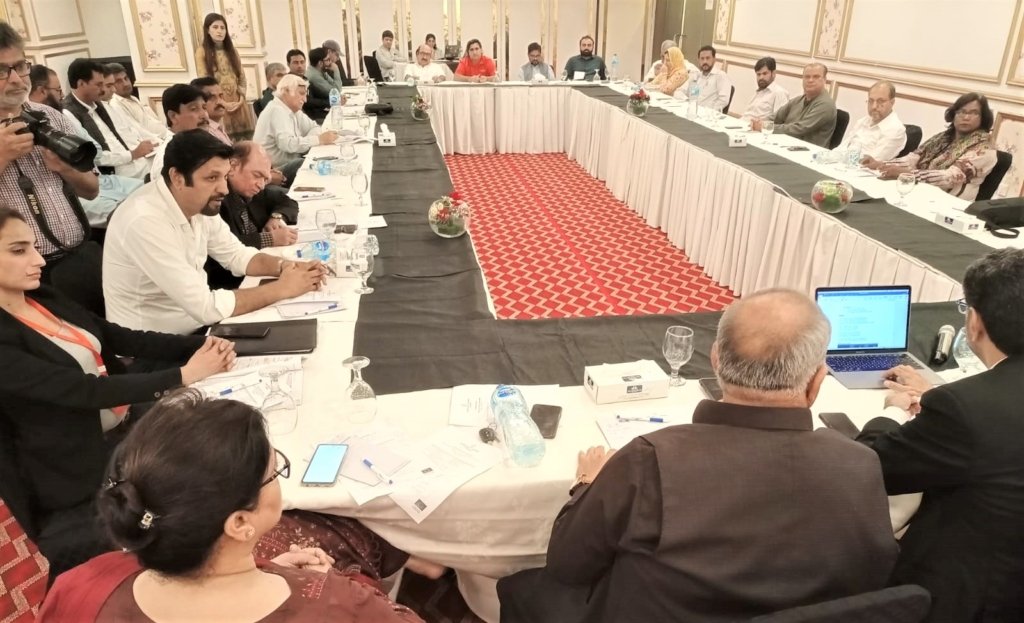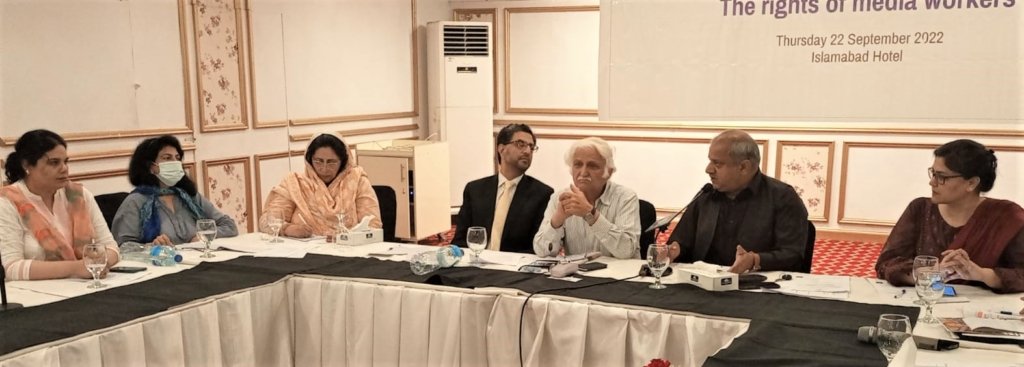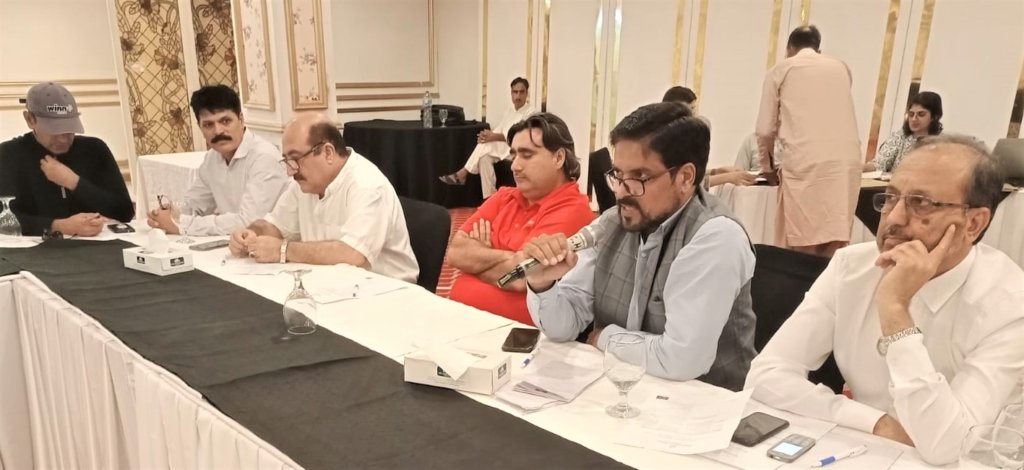Participants of an awareness session demand a new legal framework for digital and electronic media journalists and workers and; updating of existing laws for print media.
News Desk

Islamabad, Sept 22: The representatives of media and human rights watchdogs have called for a new legal framework to protect the rights of electronic as well as digital media journalists and workers. They also called for updating the existing laws on print media journalists and workers.
They made these recommendations at an awareness-raising session arranged by the Human Rights Commission of Pakistan (HRCP) to discuss the legal framework for protecting the rights of media workers, both journalists and non-journalists.
The session also highlighted the urgency in updating the existing legal framework in view of recent technological developments and sought to initiate a dialogue among media workers and their representative bodies to chart a more robust framework for the print, digital and electronic media.
The session was attended by representatives from local and international media bodies and was moderated by Advocate Aftab Alam, the executive director of the Institute of Research Advocacy and Development (IRADA).
The participants were informed that multiple indicators – such as the number of workers in various media platforms, the number of media channels and advertisement spending across media platforms – reflect a massive shrinkage in print media, with greater space being taken by broadcast, electronic and digital media.
While the rights of journalists and non-journalist workers in the press and print media industry were protected through the enactment of a special law called Newspaper Employees (Conditions of Service) Act, 1973, no special law has yet been enacted to extend similar protection to workers in the electronic and digital media industry.
Thus, workers in the electronic and digital media industry rely on general labour laws for the protection of their rights as workers. However, the degree of protection is inadequate.
Most importantly, although the emergence of new digital media platforms has created opportunities for a new labour market, this market lacks any legal or institutional cover to protect the labour rights of workers engaged in digital media.
It was further highlighted that the current legal regime, instituted in the last century, is gender-blind and by still retaining terms such as ‘workmen’ these exclude representation of women and gender minorities.
Pakistan Federal Union of Journalists President Afzal Butt urged media workers to stay abreast of technical developments and gain more training to benefit from new opportunities created by emerging technologies in media.

Reflecting on the challenges faced specifically by women journalists, National Press Club vice-president Myra Imran stated while almost all media workers face backlash, particularly in the digital space, women are more susceptible to attacks as they are seen as ‘soft targets’ because honour is associated with women in society.
She said women are also more frequent targets of lay-offs by media houses. She recommended that there should be a legally mandated gender audit of all media organisations which examine issues like the nature of employment contracts, infrastructure in offices, percentage of female employees etc.

Women Journalists Association of Pakistan member Fozia Kalsoom highlighted the absence of women in senior positions in media organisations. Women are often laid off for requiring accommodation if they become widowed or need maternity leave.
She stressed the need for mainstream journalist unions to support their women colleagues and their representative groups.
The All-Pakistan Newspapers Employees Confederation (APNEC) chairperson Siddique Anzar said that there still has not been a clear identification and definition of who a media worker actually is, especially in juxtaposition to a journalist.
Journalists are more resourceful in getting visibility for their issues. But it’s different for media workers as they do not have similar privileges or even knowledge about solutions.
Rawalpindi-Islamabad Union of Journalists (RIUJ) secretary-general Tariq Ali Virk said that the rights of media workers cannot be protected if they are conflated with the rights of journalists and should be dealt with separately. Representatives of media workers are often left out of important conversations and efforts related to the media industry.
The International Federation of Journalists’ country director Ghulam Mustafa highlighted the efforts of IFJ in convincing unions to amend their constitutions to become more inclusive. IFJ is also working with media houses in strengthening their financial competency.
He called for bridging gaps between unions and workers in the digital space. Unions should modify their constitutions to ensure the registration of digital workers.
Media Workers’ Organization president Kalim Shamim noted that there has been a massive rise in retrenchments in the media industry since 2018. A majority of media organisations in twin cities do not fulfil legal perquisites governing the rights of workers such as EOBI, provident funds and health insurance. And the only remedial avenue available to media workers is the NIRC which is also overburdened and, thus, not an effective option.

The High Asia Herald is a member of High Asia Media Group — a window to High Asia and Central Asia
